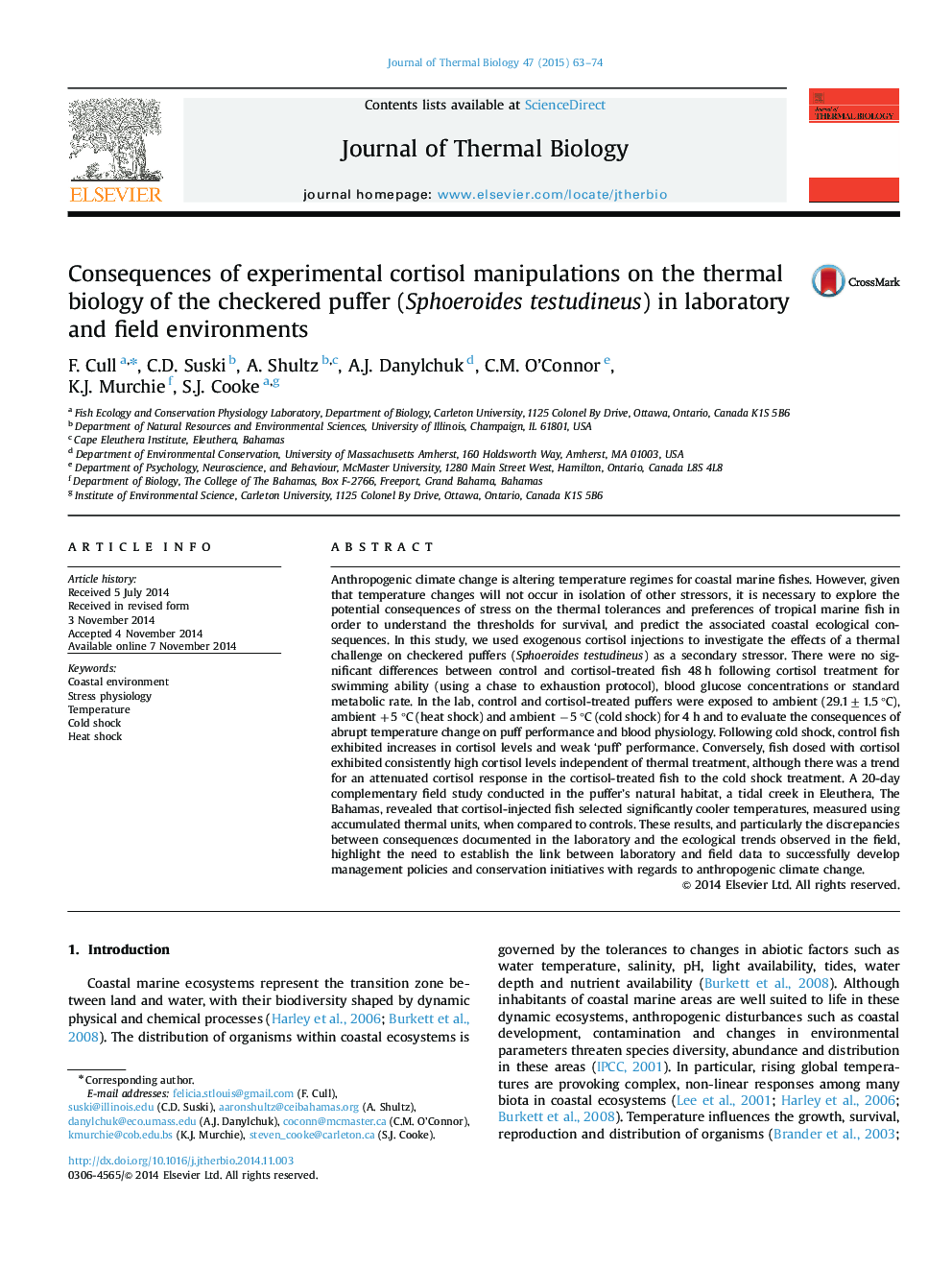| کد مقاله | کد نشریه | سال انتشار | مقاله انگلیسی | نسخه تمام متن |
|---|---|---|---|---|
| 2842931 | 1571098 | 2015 | 12 صفحه PDF | دانلود رایگان |

• Exogenous cortisol was used to examine the effects of a secondary stressor on pufferfish.
• In the lab, cortisol treated and control fish had similar swimming abilities and metabolic rates.
• In the lab, cortisol treated fish showed attenuated cortisol levels when subjected to a secondary thermal challenge.
• In the field, cortisol treated fish selected cooler temperatures in their natural habitat when compared to controls.
Anthropogenic climate change is altering temperature regimes for coastal marine fishes. However, given that temperature changes will not occur in isolation of other stressors, it is necessary to explore the potential consequences of stress on the thermal tolerances and preferences of tropical marine fish in order to understand the thresholds for survival, and predict the associated coastal ecological consequences. In this study, we used exogenous cortisol injections to investigate the effects of a thermal challenge on checkered puffers (Sphoeroides testudineus) as a secondary stressor. There were no significant differences between control and cortisol-treated fish 48 h following cortisol treatment for swimming ability (using a chase to exhaustion protocol), blood glucose concentrations or standard metabolic rate. In the lab, control and cortisol-treated puffers were exposed to ambient (29.1±1.5 °C), ambient +5 °C (heat shock) and ambient −5 °C (cold shock) for 4 h and to evaluate the consequences of abrupt temperature change on puff performance and blood physiology. Following cold shock, control fish exhibited increases in cortisol levels and weak ‘puff’ performance. Conversely, fish dosed with cortisol exhibited consistently high cortisol levels independent of thermal treatment, although there was a trend for an attenuated cortisol response in the cortisol-treated fish to the cold shock treatment. A 20-day complementary field study conducted in the puffer’s natural habitat, a tidal creek in Eleuthera, The Bahamas, revealed that cortisol-injected fish selected significantly cooler temperatures, measured using accumulated thermal units, when compared to controls. These results, and particularly the discrepancies between consequences documented in the laboratory and the ecological trends observed in the field, highlight the need to establish the link between laboratory and field data to successfully develop management policies and conservation initiatives with regards to anthropogenic climate change.
Journal: Journal of Thermal Biology - Volume 47, January 2015, Pages 63–74